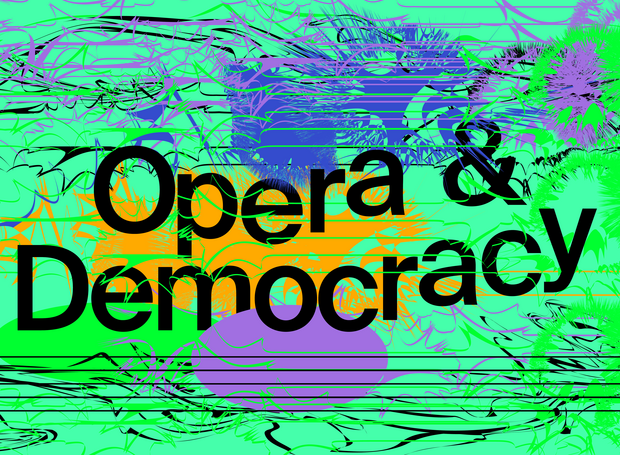Opera and Democracy: Concert & Panel Discussion with Daniela Smolov Levy, Kira Thurman, Alex Ross, Jan Vogler & Kai Hinrich Müller
Information
This series commemorates the centenary of the reopening of Berlin's legendary Krolloper in 1924, one of the leading opera houses of the interwar period and today a symbol of both the renewal of opera in the 20th century and the struggle for democratic values in times of crisis. To honor this anniversary, panel discussions with international scholars and artists will explore the multifaceted history of this important institution and delve into the complex relationship between opera and democracy today. The focus will be on the democratic potential of opera and its possible contributions to a diverse and inclusive society. Topics range from aspects of the democratization of opera, to questions of power and representation, new formats, casting and programming policies, audience expectations as well as to academic challenges and opera's ability to amplify the voices of silenced or persecuted artists. Each conversation will be accompanied by concerts, sometimes world premieres, that present excerpts from rarely performed stage works, among them works by persecuted artists discovered in archives.
On January 20, 2024, the series will start with an event at the Thomas Mann House: two concerts, a keynote address, and a panel discussion will focus on the democratic potential of opera. The concerts will highlight works by Kurt Weill, Lily Reiff, Richard Wagner, and Edmond Dédé, performed by the Kaleidoscope Chamber Orchestra and acclaimed cellist Jan Vogler. The panel discussion will feature Alex Ross, Kira Thurman and Daniela Solomon Levy, three renowned intellectuals in the international opera discourse. The program will be complemented by a keynote speech on an operatic history of diversity by Michael Steinberg, an expert of U.S. musicology.
Program
Part I
Welcome Address & Introduction
Introduction by Joy H. Calico
The Yes-Sayer, Piano Opera by Kurt Weill performed by Kaleidoscope Chamber Orchestra
Kurt Weill's school opera The Yes-Sayer premiered at the Krolloper in Berlin in 1930: composer Kurt Weill and poet Bertolt Brecht explored the relationship between the individual and society (and vice versa) and the idea of an "agreement," which they place at the center of the plot. In the end, the protagonist, a boy, decides to say "yes" and sacrifice himself for the community. The music will be presented in a concert with the Kaleidoscope Chamber Orchestra.
Part II
Saying Yes? Opera and Democracy in the 21st Century, Panel Discussion with Alex Ross, Kira Thurman, Daniela Smolov Levy, moderated by Kai Hinrich Müller
Taking its cue from Kurt Weill's The Yes-Sayer, the panel discussion will examine the political voices of opera makers in public discourse, as well as the "yes" to the institution of opera itself. Together with Kai Hinrich Müller, Alex Ross, Kira Thurman, and Daniela Smolov Levy will discuss the democratization of music theater, accessibility, diversity and community engagement, as well as the responsibility of opera in terms of a political mandate for the arts. How can opera companies and artists contribute to the strengthening of democratic values, and how can the institution of opera itself become more democratic in its programs, narratives, structures and decision-making processes?
Part III
The Operatic History of Diversity, Keynote by Michael Steinberg
Salon Concert with works by Richard Wagner, Lily Reiff, Edmond Dédé performed by Jan Vogler & Friends
Michael Steinberg introduces the salon concert with an examination of one of the most important aspects of the relationship between opera and democracy: diversity, which must also be reflected at various levels in the institution of opera. The concert with Jan Vogler, one of the world's leading cellists and director of the Dresden Music Festival, presents music by Richard Wagner, Lily Reiff and Edmond Dédé. While the former is probably the best-known composer of political operas, the latter two are largely forgotten today. Lilly Reiff hosted an important salon in Zurich—Thomas Mann was one of her guests and dedicated a section in his Doctor Faustus to her–, but also composed. Excerpts from her opera Puck's Love Song will be performed for the very first time in the United States. Similarly, African-American composer Edmond Dédé had an impressive, almost impossible musical career despite severe racial discrimination. Born in 1823 in New Orleans, he moved to France, where he enjoyed great success as a conductor and composer. This concert features a selection of his works.
Participants
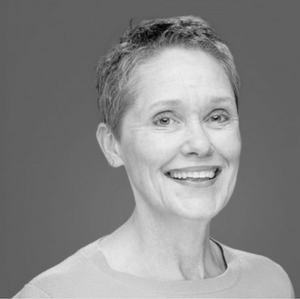
Joy H. Calico joined the faculty at UCLA in August 2023, where she is Professor of Musicology at the Herb Alpert School of Music and affiliated faculty in Jewish Studies. She has published monographs on two luminaries of the Austro-German diaspora in Los Angeles: Bertolt Brecht at the Opera (2008) and Arnold Schoenberg’s A Survivor from Warsaw in Postwar Europe (2014), both with University of California Press. Her scholarship has been supported by fellowships and grants from the American Academy in Berlin, the DAAD, the ACLS, and the NEH, among others. She is a member of the international working team of the Black Opera Research Network (BORN). Her current projects include a book about operatic scene types in 20th- and 21st-century opera based on Kaija Saariaho’s L’amour de loin, and a co-edited volume entitled Childhood and the Operatic Imaginary since 1900.
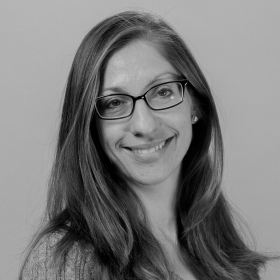
Daniela Smolov Levy studies the democratization of opera in American society, including opera’s presence in early twentieth-century Yiddish theater and Yiddish speakers’ involvement with the broader American opera scene. Daniela holds a doctorate in Musicology from Stanford University, a Master’s degree in Piano Performance from New York University, and a Bachelor’s degree in Comparative Literature and Music from Princeton University. She has presented her work at both national and local chapter meetings of the American Musicological Society and has given invited talks in Los Angeles & New York. Her article Parsifal in Yiddish? Why Not? was published in the Musical Quarterly.

Kai Hinrich Müller, 2023 Thomas Mann Fellow, studied musicology, business administration and law at the Rheinische Friedrich-Wilhelms-Universität Bonn and received his doctorate in 2013 with a thesis on the history of the early music movement. His habilitation followed in 2022. In his research, he deals with Richard Wagner and his reception in the Bayreuth circle as well as the so-called völkische Bewegung (nationalist movement), forms of anti-Semitism in music history, musical life in the interwar and especially Nazi period, as well as transatlantic opera history with a special focus on U.S. exile. He teaches at the Cologne University of Music and Dance, directs projects in Germany and abroad, and is the academic and artistic director of the Terezín Music Academy in the former Theresienstadt ghetto and the Bauhaus Music Weekend.

Alex Ross has been the music critic of The New Yorker since 1996. His first book, The Rest Is Noise: Listening to the Twentieth Century, won a National Book Critics Circle Award and was a finalist for the Pulitzer Prize. His second book, Listen to This, is a collection of essays. His latest book is Wagnerism: Art and Politics in the Shadow of Music, an account of Wagner’s vast cultural impact. He has written often about Thomas Mann and the émigré community in L.A. for The New Yorker. He was awarded with a MacArthur Fellowship and the Belmont Prize.

Michael P. Steinberg is the Barnaby Conrad and Mary Critchfield Keeney Professor of History, and Professor of Music and German Studies at Brown University in Providence, Rhode Island, USA. From 2016 to 2018 he served as president of the American Academy in Berlin. At Brown he served as the founding director of the Cogut Center for the Humanities (2005-2015), as Vice Provost for the Arts (2015-16), and on the Academic Priorities Committee in 2019-20. He is the recipient of fellowships from the John Simon Guggenheim Foundation, the American Council of Learned Societies, and the National Endowment for the Humanities. Steinbergs books include The Afterlife of Moses: Exile, Democracy, Renewal (Stanford, 2022), The Trouble with Wagner (Chicago, 2018) as well as the edited volume Makers of Jewish Modernity (Princeton, 2016; winner of the National Jewish Book Award for non-fiction).
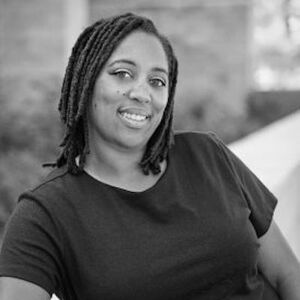
Kira Thurman is an award-winning historian and musicologist. A classically-trained pianist who grew up in Vienna, Austria, Thurman earned her PhD in history from the University of Rochester with a minor field in musicology from the Eastman School of Music. Her book, Singing Like Germans: Black Musicians in the Land of Bach, Beethoven and Brahms (Cornell University Press, 2021), traces the history of Black classical musicians in German-speaking Europe across the nineteenth and twentieth centuries. Thurman has written for outlets such as the New York Times, The New Yorker, and Frieze Magazine, and has appeared on PBS documentaries and public radio programs in Germany and the United States.
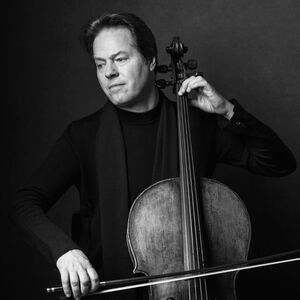
Jan Vogler is a renowned German-born classical cellist. Vogler’s distinguished career has brought him together with renowned conductors and internationally acclaimed orchestras around the world, such as New York Philharmonic, Leipzig Gewandhaus Orchestra, Deutsches Symphonie-Orchester Berlin and London Philharmonic Orchestra. His great ability allowed him to explore the sound boundaries of the cello and to establish an intensive dialogue with contemporary composers and artists. This includes regular world premieres, including works by Tigran Mansurian (with WDR Symphony Orchestra conducted by Semyon Bychkov), John Harbison (with Mira Wang and the Boston Symphony Orchestra), and many more.
Partners
An event by Thomas Mann House Los Angeles and the Kaleidoscope Chamber Orchestra






